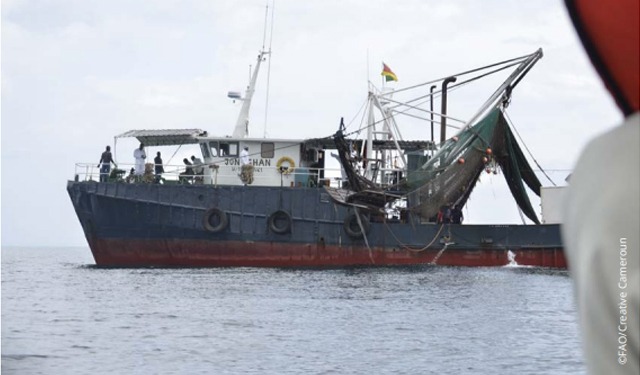Cameroon strengthens shrimp industry – As part of the FISH4ACP Global Fisheries Value Chain Development Programme, which aims to promote the economic and environmental sustainability of the fisheries sector, Cameroon took the spotlight. Dr Taiga, Minister of Livestock, Fisheries and Animal Industry, emphasised the crucial importance of shrimp for the country’s economy and stressed the need to maintain stable fishery resources to ensure the well-being of future generations.
The report The large shrimp value chain in Cameroon
The report, The large shrimp value chain in Cameroon, shows an annual production of 4,200 tonnes of shrimp from industrial fishing and over 1,000 tonnes from artisanal fishing, with an economic value of over USD 30 million. This market not only benefits fishermen and processors, but also supports the employment of about 1,800 young people in the sector.
Efforts to consolidate the shrimp sector are led by FISH4ACP, an initiative of the Organisation of African, Caribbean and Pacific States (OACPS), with financial support from the European Union and the German Federal Ministry for Economic Cooperation and Development. This led to a 10-year sector-approved strategy to improve the productivity and competitiveness of the shrimp value chain, while maintaining control over catches and improving product quality.
The German Ambassador, Valentin Katzer, praised the integrated approach of FISH4ACP, emphasising how it is possible to promote responsible fishing that fosters economic growth and creates jobs. Philippe Mayaux, Minister-Counsellor at the EU Delegation in Cameroon, added that this initiative demonstrates the synergy between economic development and environmental sustainability.
Athman Mravili, FAO representative in Cameroon, expressed satisfaction with the results achieved so far. He highlighted the crucial role of the ‘PLACRECAM’ platform, which coordinates actors along the value chain, ensuring the continuity of efforts beyond the end of the initiative in 2025.
Future Commitments
The efforts do not stop here. In fact, a baseline study is underway to improve the management of the shrimp sector, while a new digital tool for collecting catch data is being developed. These initiatives, together with a quality standard for fish products, will contribute to a stronger and healthier sector, bringing tangible benefits to the local economy and fostering employment, particularly among women and young people.
Cameroon strengthens shrimp industry









